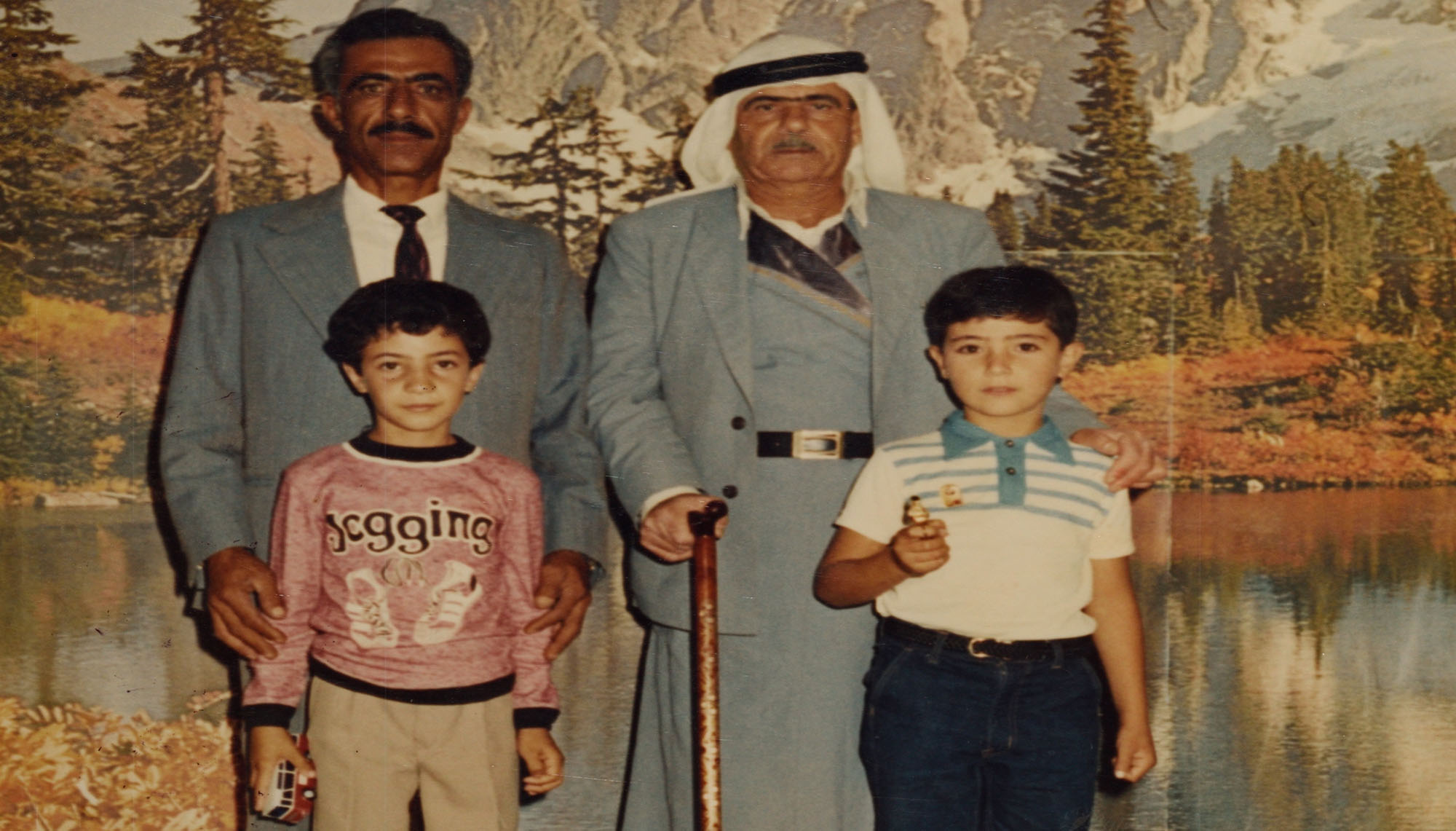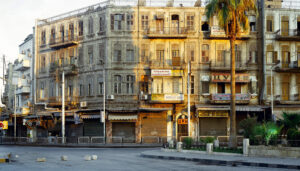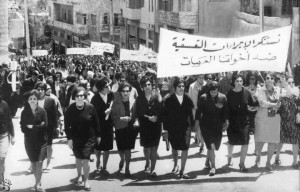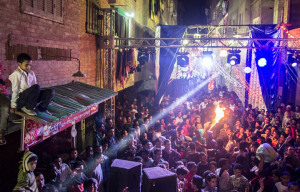A few weeks ago, the 7iber crew met up with a few brilliant young residents of Jabal Al-Ashrafyah, who, in the absence of any official help from their City, had taken up the task of cleaning up their streets. Last Thursday, the 7iber crew went back to the Jabal to see what had changed since their first visit in July, and to what extent the article Taking Back The Streets had an impact.

Written By: 7iber | Multimedia: Naseem Tarawnah
The first thing that grabs your attention is the incline. Jabal Al-Ashrafyah, like all of its surrounding sister jabals (or hills) is a condensed community of homes that take the shape of a giant hill imperfectly. The view of west Amman is stunning, and perhaps a glaring contrast to the realities of the Jabal and the rest of east Amman. For those who have ever argued that the city is not divided should pay a visit to Al-Ashrafyah and stare at the progress of the landscape in the far horizon. The towering skyscrapers of the Jordan Gates and the peaking gestures of monumental hotels such as Le Royal seem a whole other city away. As one local resident remarked, progress is something that takes a long time to get to a place like Jabal Al-Ashrafyah, where even something as small as the new street signs that have only recently mapped out west Amman, have yet to make an appearance over here.
Through the winding and complicated roads we find our way back to the street that saw local kids making a difference. It is a humble cul–de–sac called Souq Okaz, with only a few tightly-packed, stone-less buildings on either side, yet this small block is home to over 30 kids under the age of 14. How they became a mobilized team is not a long story. Tatawor, a Jordanian NGO that focuses on youth and women development and growth, has been going into such communities and creating what can best be described as a very decentralized steering committee that meets once a month. Schooled by Tatawor in the ways of good governance and active citizenship, the committee attempts to outline the local problems they face, such as the lack of a police station in the area, and Tatawor helps bring the policymakers to the table in an attempt to remedy the situation. It is a program Tatawor has developed under the name “Citizen In My City”.

Nadia’a Mirdia, a local mother who attended one such meeting convinced her 14-year old son, Ameen Sanjaqieh of the concept of active citizenship, who spared no time in mobilizing his friends. Before venturing into the streets to play – the only open space where they can actively do that – the kids would take it upon themselves to clean up beforehand. Soon enough they decided to buy some chalk and draw on the walls to give the street some character, and in no time, they sought out some support from Tatawor to help them facilitate activities where they could paint their sidewalks or even create a mural. In a matter of weeks, the idea has grown to reach about 60 local children in Al-Ashrafyah, all of whom are willing and eager to change their own streets. It has become a small campaign that has been cultivated under the banner of: “Clean at home, Clean Everywhere,” a slogan created by Ameen himself.

A few days after being published on 7iber, the crew received a call from the Greater Amman Municipality, followed by another call from the Royal Hashemite Court, both parties expressing interest in the story. Soon enough, the kids were rewarded for their efforts in unexpected ways. Jordanian actor Ghandi Saber, best known for his role as the villainous father in the award-winning film Captain Abu Raed, paid a visit to the street and helped the kids develop a short and lively play on their experiences. Artist Tareq Areeda also came around to help them spray paint a few walls, depicting both their experiences and their aspirations.
The result was a fun-filled afternoon that saw the local kids putting their personal touches on their walls to the point of insistence and overflowing enthusiasm. In the end, with an August Sun descending, the most difficult task became convincing everyone that they couldn’t paint in the dark, leaving one wall incomplete until another day in the near future, and hence this story ending in the only way such stories should end: with a hopeful ‘to be continued.’











